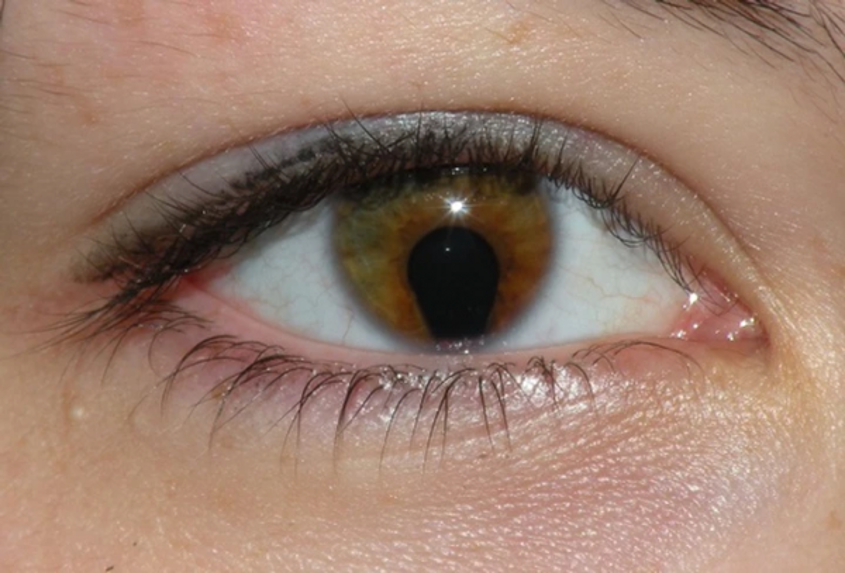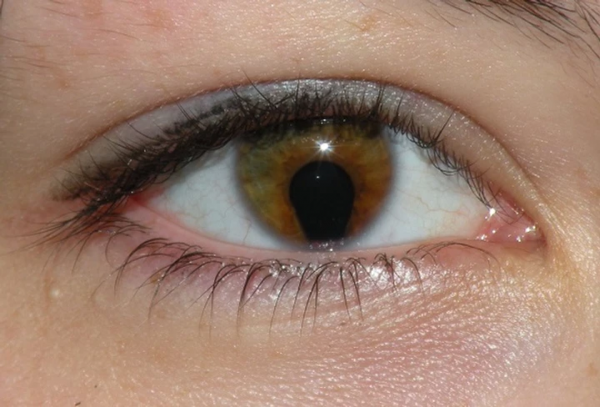The iris is the part of your eye that is the coloured circle surrounding the pupil. It changes the size of the pupil to allow different amounts of light to enter your eye.

If you suffering from a defect within your iris, this could be due to a number of things:
Aniridia
This condition is caused by a partially or fully absent iris and is typically congenital. You will suffer from symptoms such as photophobia and poor vision.
Coloboma
This is a hole in one of the structures of the eye which typically develops before birth. An iris coloboma is the most common eye coloboma around. Often, the pupil will look like an upside-down pear or keyhole. This condition can also affect other eye structures, such as the retina, eyelid and optic nerve. You can only see eyelid and iris colobomas with the naked eye. You may suffer from further symptoms such as poor vision.
An eye tumour
This is a mass or growth that occurs next to or inside the eye. The cause of this condition depends on the type of tumour you have. Symptoms in addition to an iris defect may include a bulging eye, blurred vision, double vision, foreign body sensation, floaters, discomfort or pain in the eyes, around the eyes or the eyelid, pink or red eye, vision loss, cloudy or white spot on the eye, and limited lid or eye movement.
Surgery complications
An iris defect could be the result of a surgery complication from LASIK, cataract surgery, or other eye surgeries. Other symptoms can include ptosis, blurred vision, foreign body sensation, light sensitivity, halos around lights, eye discomfort or pain, pink or red eyes, and vision loss.
Trauma
Injury to the eye, such as being hit in the head or poked in the eye, could cause an iris defect. Depending on the type of trauma that has occurred, symptoms can include a bulging eye, blurred vision, double vision, burning, dry eyes, light sensitivity, floaters, discomfort or pain of the eye or around the eye, a pupil that is unresponsive to light or dilated, swelling, vision loss, limited lid or eye movement, and an eyelid cleft.
When to see a doctor
If you feel like you are suffering from a defect within your iris, it’s important to make an appointment with an eye doctor to gain a proper diagnosis. This will allow you to receive effective treatment.





